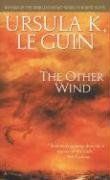
Reviews
karno dasgupta@karno
Janice Hopper@archergal
Fraser Simons@frasersimons
Eleanor Luhar@bookmarked642
Sara Gaspar Farinha@sarafarinha
Jiji@notparanoid
Katja Evertz@KatjaEvertz
taylor miles hopkins@bibette
Boothby@claraby
Fatih Arslan@fatiharslan
Gabe Cortez@gabegortez
Joana Duarte@judart
Bartek@ornaled
Nate@meiii
Scott Robertson@spr
Gavin@gl
lh@celosia
Hunter Loftis@hunterloftis
Taylor@taylord
Briar Rose@briarrosereads
Magnus Dahl@gorillotaur
A.L.L.@alice_is_alces
Hans Gerwitz@gerwitz
Vojtěch Švec@vojtechsvec